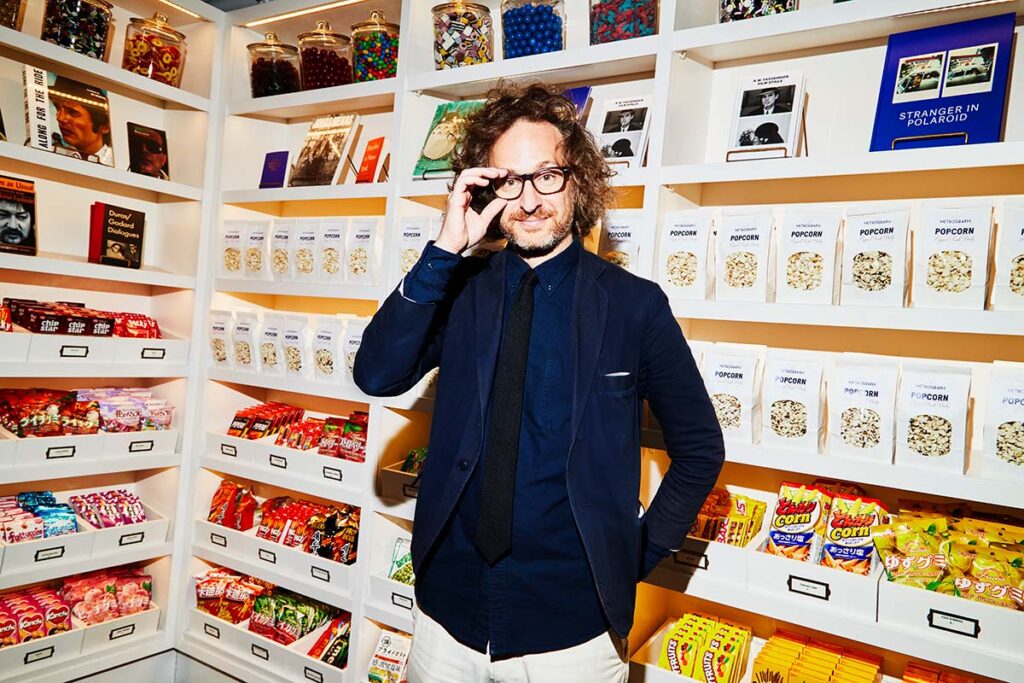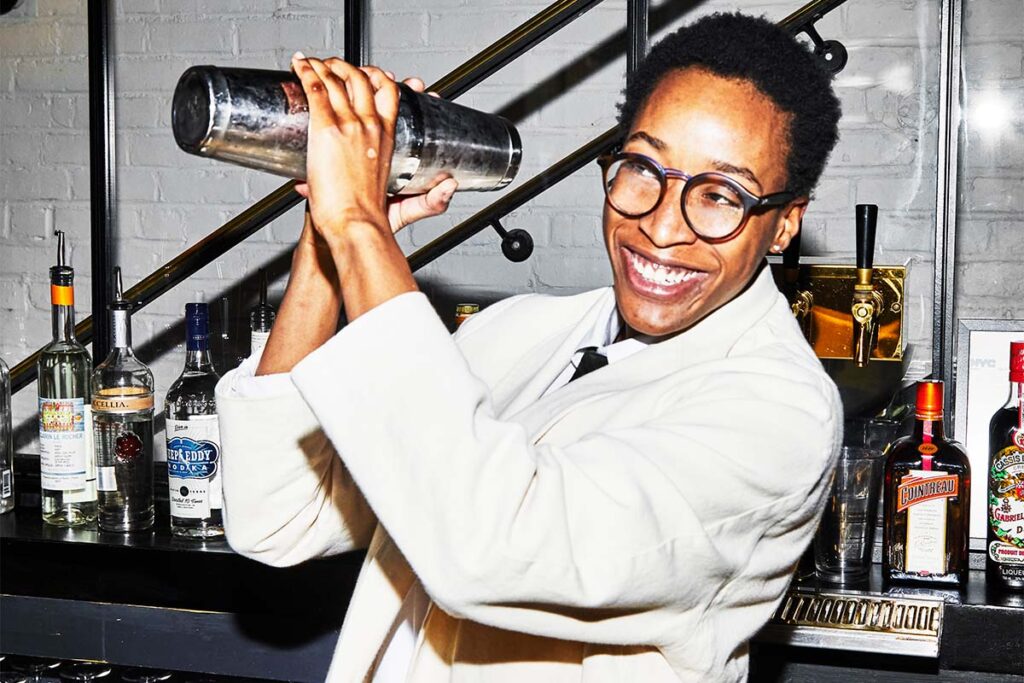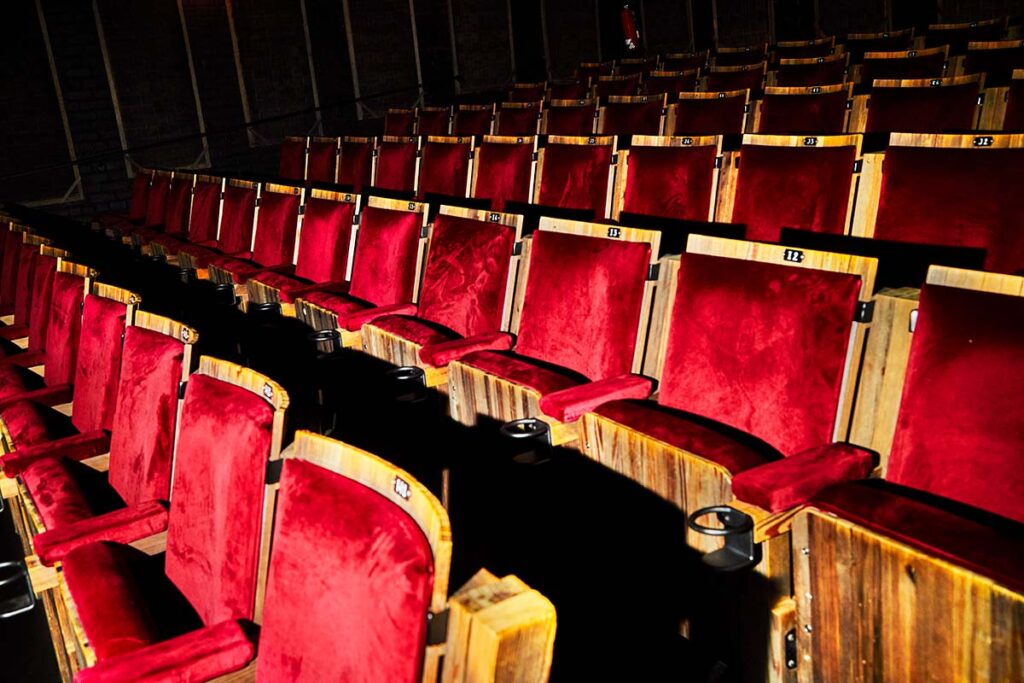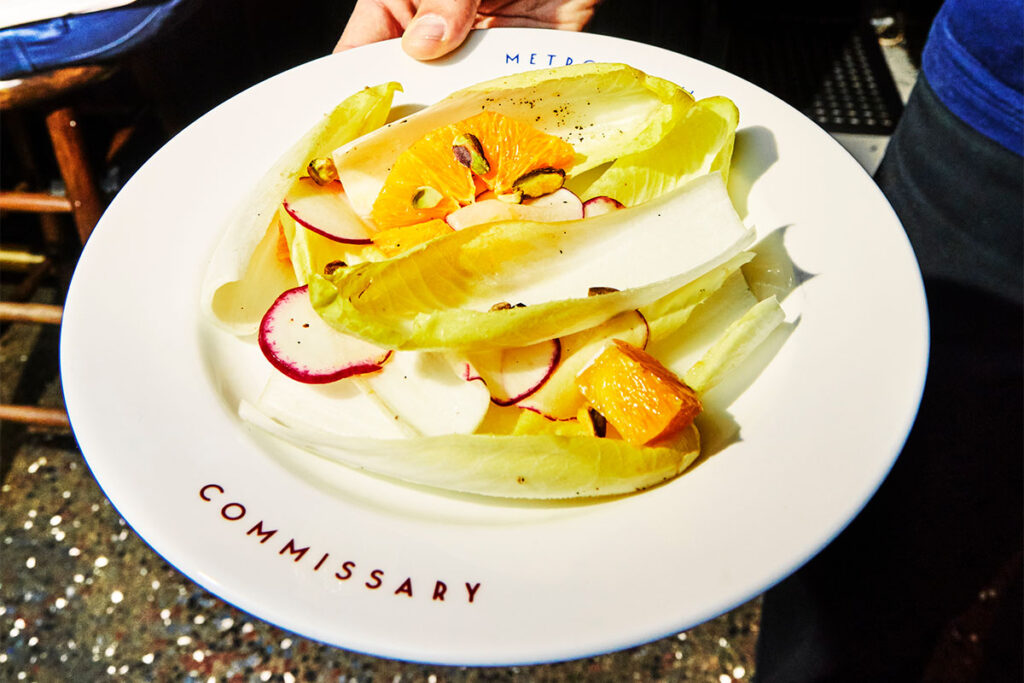It’s a Friday night at Commissary on Ludlow Street and the wide leaves of a Monstera plant sway, casting film noir shadows across the restaurant’s floor. The newly unmasked crowd sit squished together on plush sofas and pack leather banquettes illuminated by a soft, glamorous light that makes everyone look slightly better than they should—and who can’t use that after COVID and its relentless sequels?
It’s a borderline miracle that the home of Commissary, the indie film metroplex Metrograph, survived the plague at all. Metrograph unites many of the businesses most hammered by social isolation: cinema, bar, restaurant, shop. But this arthouse cinema and creative “third place” (defined by sociologist Ray Oldenburg as a gathering space that’s neither home nor work) is a passion project. And not just for Alexander Olch—filmmaker, fashion designer, entrepreneur and Metrograph and Commissary’s founder—but for all the people involved.

The role Commissary plays in anchoring Metrograph was central to Olch from the get-go. “There’s something very important to me about how people come together around eating and drinking, and the talking and sharing of creative ideas that comes with it. It creates a very special experience.” He continues, “Films are made by groups of people, and the energy of that group is such a big part of how the movie is made and experienced. And one of the main things that groups do together is eat.”

His design ethos encompasses a social vision for the restaurant, which essentially hovers above the cinema lobby. “I am drawn to spaces that offer different purposes at the same time. That, to me, is what makes a train station inherently romantic.” He elaborates, “There are people arriving, there are people leaving, there are people waiting, and it’s just the same with this space. Those different purposes create a very special kind of energy.”
The dining room overlooks both the lobby and Ludlow Street, with large windows hacked out of the industrial-scale brick walls (to Olch’s exact dimensions). Olch used his directorial eye to create a room full of interesting sightlines. “I didn’t want one seat to have a bad view,” he explains. “My design goal was to ensure that every single seat here allows you an interesting perspective—people entering the cinema, walking up the stairs to the restaurant, drinking at the bar, shopping the bookstore.”

The name, Commissary, hearkens to the restaurants that operated on studio lots during the Golden Age of Hollywood, where Clark Gable or Joan Crawford might dine beside grips and the lighting crew. Studio commissaries, Olch explains, offered an eating experience that was both egalitarian and of very high quality—commissaries also ensured that stars didn’t stray from the studio to hold up production while they refueled. “I mean, the menus looked simple, but whether they were serving steak or spaghetti, it was always the best in California. It had to be to keep somebody like Cary Grant happy.” Olch decided to take that old-school approach into his kitchen: “Our goal is to combine extreme simplicity with extreme quality.”

Invoking the glamor of Hollywood’s past, yet grounding the restaurant firmly in the now, drew directly from Olch’s directorial experience. “Something I’ve explored in my filmmaking is the relationship with time and memory. I played with that here, too. If you look at any specific design element you could say, ‘Oh, maybe that’s a little bit 1920s, or ’40s, or ’50s,’ but, really, everything is intentionally blurred. At the same time, you can see modern electrical conduit and pipes running along the ceiling.” For Olch, this contrast is what makes the space work. “The tension between being very aware of the present, and yet having an echo of the past, for me, is what makes this a magical place.”
Olch’s very deliberate approach created the odd spat along the way. “I wanted the tables made for the center of the room to have a very specific kind of green leather top, you know, so they looked like old card tables.” He laughs, “people were yelling at me from the beginning, ‘you can’t do that in a restaurant, the leather will get all messed up.’ And I ignored them!” He says he doesn’t mind refreshing the leather every now and again. “Those tables, that pop of color, for me, does something very specific. I think subconsciously, when you walk in here, you can feel that these things didn’t come out of a catalogue.” He pauses for a moment. “Every choice was like that—there’s a lot of love that has gone into this.”



